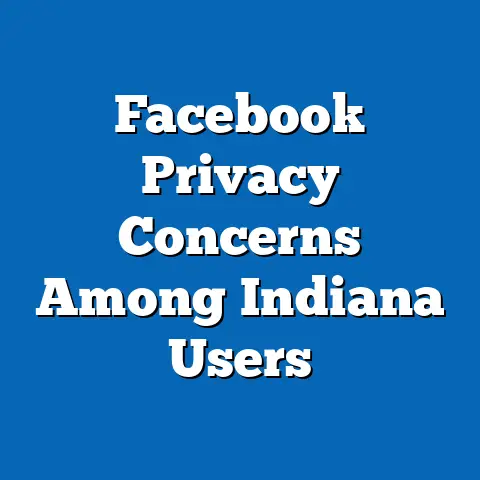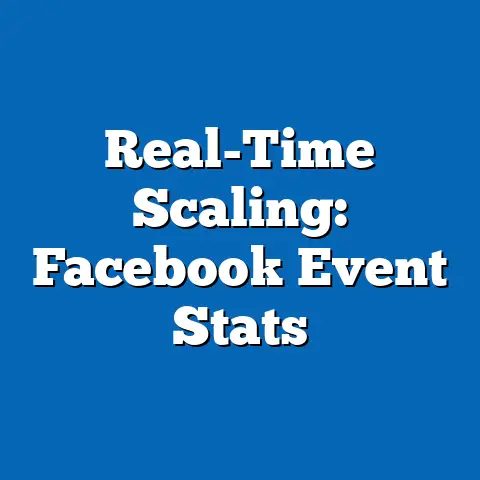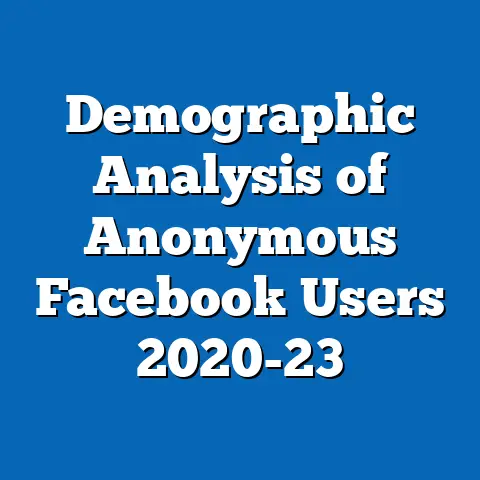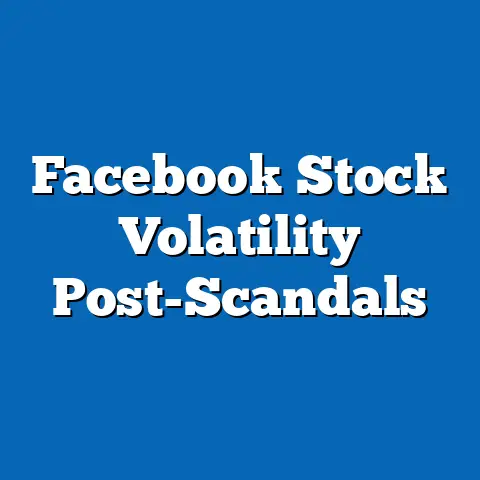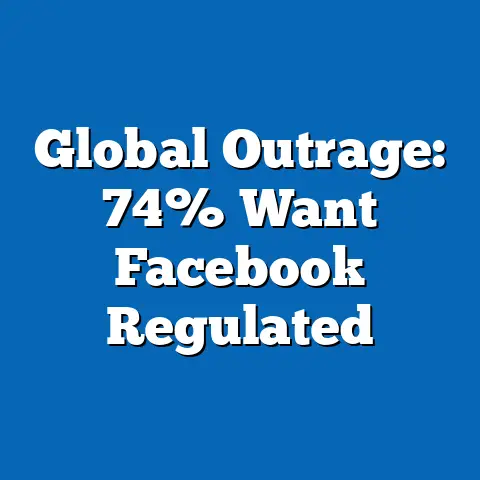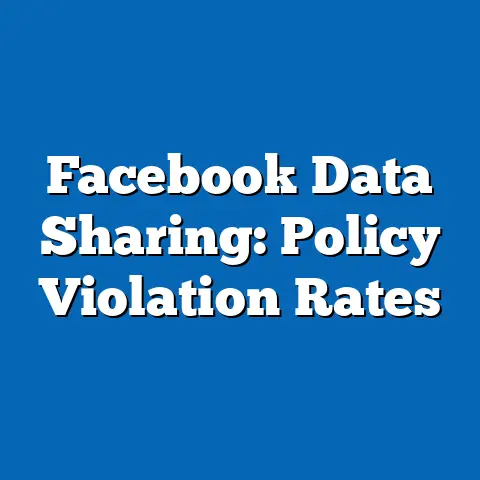Facebook Ad Revenue Monopoly: Sector Impact
In the 2024 Netflix documentary Digital Titans: The Rise of Meta, a striking montage captures the omnipresence of Facebook—now Meta—in our daily lives: a teenager scrolling through Instagram at breakfast, a small business owner boosting a post to reach local customers, and a political campaign manager analyzing ad performance metrics. This imagery reflects a broader cultural narrative where social media platforms, led by Meta’s flagship product Facebook, are not just tools but integral to personal identity, commerce, and even democracy. As the world’s largest social networking platform, Facebook has become synonymous with digital advertising, shaping how billions connect and consume content.
This cultural dominance, however, comes with significant economic power. Since its inception in 2004, Facebook has grown from a college networking site to a global behemoth, commanding a substantial share of the digital advertising market—an estimated 24.2% of global ad revenue in 2023, according to eMarketer. This article explores the implications of Facebook’s ad revenue monopoly, delving into its historical context, defining characteristics, and far-reaching impacts on various sectors in 2024.
We will analyze how this dominance influences small businesses, competitors, consumer behavior, and regulatory landscapes. Additionally, we will consider the societal implications of such concentrated power in the digital economy, drawing on both quantitative data and qualitative insights. By examining these dimensions, this piece aims to provide a comprehensive understanding of Facebook’s role in shaping the future of advertising and beyond.
The pivotal moment in Facebook’s monetization strategy came in 2007 with the launch of Facebook Ads, allowing businesses to target users based on demographic data. This innovation capitalized on the platform’s growing user base—now over 3 billion monthly active users as of 2023—and the detailed personal information users willingly shared. By 2012, when Facebook went public, its ad revenue model had solidified, generating billions annually and outpacing traditional media outlets.
This historical trajectory reveals how technological advancements, economic conditions, and strategic decisions positioned Facebook as a near-monopoly in ad revenue. However, this growth also sparked concerns over privacy, competition, and societal impact—issues that remain central to discussions in 2024.
Defining Characteristics of Facebook’s Ad Revenue Monopoly
Facebook’s dominance in digital advertising is characterized by several key factors that distinguish it from competitors. First, its unparalleled user data allows for hyper-targeted advertising, leveraging algorithms that analyze user behavior, interests, and demographics. This precision gives advertisers unmatched return on investment (ROI), with studies showing that Facebook ads can generate up to 8x higher click-through rates compared to traditional online banners.
Second, the platform’s scale—spanning Facebook, Instagram, and WhatsApp—creates a network effect where businesses feel compelled to advertise on Meta’s platforms to reach vast audiences. In 2023, Meta reported $131 billion in ad revenue, dwarfing competitors like Google (which holds 28.6% of the market but operates across broader search and display sectors). This scale also allows Meta to set pricing and terms with little pushback from advertisers.
Third, Facebook’s proprietary algorithms and lack of transparency in ad placement create a “black box” effect, where businesses must trust the platform’s optimization without fully understanding how their budgets are allocated. This opacity, while criticized, reinforces dependency on Meta’s ecosystem. Combined with barriers to entry for new competitors—due to high infrastructure costs and data requirements—these characteristics cement Facebook’s monopolistic position in 2024.
Sector Impacts in 2024: A Multifaceted Analysis
1. Small Businesses: Dependency and Vulnerability
For small businesses, Facebook’s ad platform has been a double-edged sword. On one hand, it offers affordable access to targeted marketing, with ad campaigns starting as low as $5 per day. A 2023 survey by the National Federation of Independent Business found that 62% of small business owners in the U.S. rely on Facebook Ads for customer acquisition, particularly in retail and service sectors.
On the other hand, this dependency leaves small businesses vulnerable to Meta’s pricing changes and algorithm updates. For instance, the 2021 iOS privacy update, which limited tracking capabilities, reduced ad effectiveness for many small businesses, with some reporting a 20-30% drop in ROI, according to Shopify data. Moreover, Meta’s ability to prioritize larger advertisers or shift focus to new formats (like Reels) can marginalize smaller players with limited budgets.
In 2024, this dynamic is expected to intensify as Meta introduces AI-driven ad tools that may favor businesses with larger datasets or budgets. While these tools promise better targeting, they risk creating a wider gap between small and large advertisers. Small businesses may need to diversify their marketing channels—such as TikTok or email campaigns—to mitigate over-reliance on Meta.
2. Competitors: Stifled Innovation and Market Barriers
Facebook’s ad revenue monopoly significantly impacts competitors in the digital advertising space. Google, while a major player, operates in a different niche with search advertising, leaving Meta largely unchallenged in social media ads. Smaller platforms like Snapchat and Pinterest struggle to compete, with ad revenues of $4.6 billion and $2.8 billion respectively in 2023, compared to Meta’s $131 billion.
This disparity stifles innovation as smaller companies lack the resources to develop comparable targeting technologies or attract large advertisers. Additionally, Meta’s acquisitions of potential competitors—such as Instagram—demonstrate a strategy of neutralizing threats before they scale. A 2022 Federal Trade Commission (FTC) report highlighted that Meta’s market practices create “anticompetitive effects,” limiting consumer choice and innovation.
Looking to 2024, emerging platforms like TikTok (with $18 billion in ad revenue in 2023) pose a potential challenge, particularly among younger demographics. However, Meta’s ability to replicate successful features (e.g., Stories and Reels) and leverage its existing user base may continue to suppress competitive growth. Without significant regulatory intervention, the competitive landscape is likely to remain skewed in Meta’s favor.
3. Consumer Behavior: Privacy Concerns and Ad Fatigue
From a consumer perspective, Facebook’s ad monopoly shapes online experiences in profound ways. The platform’s data collection practices—tracking user activity across apps and websites—enable highly personalized ads but raise privacy concerns. A 2023 Pew Research Center survey found that 74% of Americans are “very concerned” about how social media platforms use their data, with many citing Facebook as a primary worry.
Moreover, the sheer volume of ads on Meta’s platforms contributes to “ad fatigue,” where users become desensitized to marketing content. Studies from Nielsen in 2023 suggest that 58% of users skip or ignore ads on social media, a trend that could reduce effectiveness for advertisers over time. In response, Meta has experimented with less intrusive ad formats, but balancing user experience with revenue goals remains a challenge.
In 2024, consumer pushback against data practices may grow, especially as privacy regulations like the EU’s General Data Protection Regulation (GDPR) evolve. Users may increasingly adopt ad blockers or opt out of tracking, potentially forcing Meta to rethink its revenue model. This shift could have ripple effects across the digital economy, influencing how other platforms prioritize user trust.
4. Media and Publishing: A Strained Relationship
Traditional media and publishing sectors have been particularly affected by Facebook’s ad monopoly. As advertising dollars shifted to digital platforms, news outlets saw a dramatic decline in revenue, with U.S. newspaper ad revenue dropping from $49 billion in 2006 to $9.6 billion in 2022, per the Newspaper Association of America. Facebook’s role as a primary news distributor further complicates this dynamic, as publishers rely on the platform for traffic but receive little direct revenue.
Meta’s decision to deprioritize news content in its algorithm—announced in 2023 as a response to regulatory pressures in countries like Australia and Canada—has exacerbated tensions. Publishers now face reduced visibility, with some reporting a 30-50% drop in referral traffic. This forces media companies to either pay for ads on Meta’s platforms or seek alternative distribution channels.
For 2024, the outlook remains uncertain. While some publishers are pivoting to subscription models or independent platforms, others may struggle to survive without Meta’s reach. This trend raises broader societal concerns about the decline of quality journalism and the spread of misinformation in a landscape dominated by social media algorithms.
5. Regulatory Landscape: Antitrust and Policy Challenges
Facebook’s ad revenue monopoly has drawn intense scrutiny from regulators worldwide. In the U.S., the FTC and Department of Justice have filed antitrust lawsuits against Meta, alleging that its market dominance harms competition and consumers. The EU has imposed fines totaling over €1.2 billion since 2018 for privacy and competition violations, while countries like India and Brazil are drafting stricter digital market regulations.
These efforts aim to address issues like data monopolies, unfair pricing, and barriers to entry for competitors. However, enforcement remains challenging due to Meta’s global scale and lobbying power—spending $19 million on U.S. lobbying in 2022 alone, according to OpenSecrets. Critics argue that current fines and penalties are insufficient, representing a fraction of Meta’s annual revenue.
In 2024, regulatory pressure is expected to mount, with potential outcomes including forced divestitures (e.g., spinning off Instagram) or stricter data-sharing rules. Such measures could reshape the digital ad market, though their success depends on international cooperation and Meta’s willingness to comply. The broader implication is a possible shift toward a more fragmented, competitive digital economy—if regulators can overcome legal and political hurdles.
Societal Implications: Power, Privacy, and Polarization
Beyond sector-specific impacts, Facebook’s ad revenue monopoly carries profound societal consequences. The platform’s ability to influence public opinion through targeted ads has been linked to political polarization and misinformation, most notably during the 2016 U.S. election and the Cambridge Analytica scandal. A 2023 study by MIT found that false news stories on Facebook are shared six times more often than factual ones, amplifying societal divisions.
Economically, Meta’s dominance concentrates wealth and power in a single entity, raising questions about accountability. With a market capitalization of over $1 trillion in 2023, Meta wields influence over global markets, labor practices, and even cultural norms. This concentration of power challenges democratic principles, as unelected tech executives shape discourse and access to information.
Culturally, Facebook’s ad-driven model prioritizes engagement over well-being, often promoting sensationalist content to maximize clicks. This has implications for mental health, particularly among younger users, with a 2023 American Psychological Association report linking excessive social media use to anxiety and depression. As society grapples with these issues in 2024, the call for ethical tech practices grows louder.
Technological and Economic Factors Fueling Monopoly
Several technological and economic factors sustain Facebook’s ad revenue dominance. Technologically, its investment in AI and machine learning enhances ad targeting and user retention, with over $10 billion spent annually on R&D as of 2023. These innovations create a feedback loop where better ads attract more advertisers, further entrenching Meta’s position.
Economically, the low marginal cost of serving additional users or ads allows Meta to scale efficiently, unlike traditional media with high production costs. Network effects also play a role—users and advertisers flock to the platform with the largest audience, creating a self-reinforcing cycle. Additionally, global economic trends, such as the post-COVID shift to digital commerce, have accelerated ad spending on platforms like Facebook.
However, these factors are not without risks. Technological disruptions (e.g., new privacy-focused browsers) and economic downturns could challenge Meta’s model. In 2024, monitoring these variables will be crucial to understanding whether its monopoly can be sustained long-term.
Nuances and Diversity in Impact
While Facebook’s dominance is often framed as uniformly negative, the reality is nuanced. For some sectors, like e-commerce startups, Meta’s platforms provide unparalleled opportunities to scale quickly. A 2023 case study by Harvard Business Review highlighted how a small beauty brand grew from $10,000 to $1 million in annual revenue solely through Instagram Ads.
Geographically, impacts also vary. In developing economies, where traditional advertising infrastructure is limited, Facebook Ads offer a lifeline for businesses to reach customers. Conversely, in mature markets like the U.S. and EU, saturation and privacy concerns dampen enthusiasm among users and regulators alike.
Demographically, younger generations like Gen Z are shifting toward platforms like TikTok, with a 2023 Statista report showing a 15% decline in Facebook usage among 18-24-year-olds. This suggests that Meta’s monopoly may face generational challenges, even as it retains older users. Acknowledging these differences prevents oversimplification and highlights the complex nature of Meta’s influence.
Forward-Looking Insights: 2024 and Beyond
Looking ahead to 2024, several trends could shape the trajectory of Facebook’s ad revenue monopoly. First, advancements in AI could further refine ad targeting but also intensify privacy debates, potentially leading to stricter regulations. Meta’s pivot to the metaverse, while still nascent, may open new advertising avenues, though its $13.7 billion loss in Reality Labs in 2022 raises questions about viability.
Second, competitive pressures from TikTok and decentralized platforms could erode Meta’s market share, especially if younger users continue migrating. Regulatory outcomes will also be pivotal—successful antitrust actions could fragment Meta’s ecosystem, while ineffective policies may perpetuate the status quo.
Economically, a potential recession in 2024 could reduce ad budgets, testing Meta’s resilience. Conversely, continued digital transformation across industries may sustain demand for its services. Societally, growing awareness of tech’s harms could spur grassroots movements for data rights, influencing how Meta operates.
While predicting exact outcomes is challenging, one certainty remains: Facebook’s ad revenue monopoly will continue to shape the digital landscape. Balancing innovation, competition, and ethical responsibility will be critical for policymakers, businesses, and consumers alike.
Conclusion
Facebook’s ad revenue monopoly in 2024 is a multifaceted phenomenon, rooted in historical growth, technological prowess, and economic strategy. Its impacts span small businesses, competitors, consumers, media, and regulatory frameworks, with profound societal implications for privacy, polarization, and power dynamics. While offering undeniable benefits like accessibility and scale, it also poses risks of dependency, stifled innovation, and cultural erosion.
This analysis underscores the need for nuanced perspectives, recognizing both the opportunities and challenges Meta presents. As we navigate 2024, stakeholders must address these issues through collaboration—whether via regulatory reform, competitive innovation, or consumer advocacy. The future of digital advertising, and indeed the broader digital economy, hinges on how society responds to the dominance of giants like Facebook, ensuring that power is wielded responsibly in an increasingly connected world.

